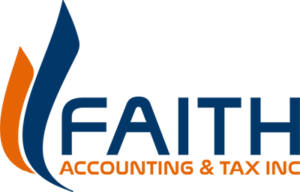The intricate world of Canadian taxation rules can be frightening for small businesses that cannot afford much. However, tax compliance is not just the law. It is vital for the long-term success and sustainability of your business. This guide seeks to provide basic information and resources that will enable Canadian small businesses to navigate the tax terrain confidently.
Understanding Your Obligations
First, you must know what you are supposed to do to meet your tax obligations. This depends on the business structure (sole proprietorship, partnership, corporation) and activities.
- Registering with the Canada Revenue Agency (CRA) – All businesses need a Business Number (BN), which requires registration with CRA.
- GST/HST Registration – Businesses with an annual turnover above $30,000 must register for either Goods and Services Tax (GST) or Harmonized Sales Tax (HST), depending on their location. That means they have to collect and remit this money back to CRA.
- Payroll Taxes – For organizations with employees, knowledge about payroll taxes and deductions like personal income tax, Employment Insurance (EI), and Canada Pension Plan (CPP).
Record-Keeping is Key
For complying with taxes, keeping accurate records is paramount. These records include:
- Income and Expenses – Ensure your business incomes and expenditures are diligently tracked. Use accounting software or spreadsheets so that your record-keeping becomes efficient.
- Receipts & Invoices – Keep all receipts related to business expenses and sales invoices for at least six years after the year of taxation has passed.
- Bank Statements – Regularly reconcile bank statements to ensure accuracy and follow up on business transactions effectively.
Filing Taxes Accurately and On Time
- You need to know when to file your income tax and what forms you must fill in to avoid any mistakes. Generally, deadlines and forms can be adjusted depending on the complexity of your business and its annual tax obligation reporting requirements.
- Income Tax Returns – Having a sole proprietorship which is probably filed with the T1 General or an incorporated business that files the T2 Corporate return, one should confirm that they meet the deadline for filing an annual income tax return.
- GST/HST Declarations – GST/HST reporting can take the form of either quarterly or monthly returns, depending on the sales volume levels.
- Submit T4 and T5 forms to CRA no later than indicated on the CRA website.
Seek Professional Help from Faith Accounting & Tax Inc
By seamlessly directing tax complexities, Canadian small businesses thrive with strategic tips and professional guidance from Faith Accounting & Tax Inc. Always remember that staying compliant with taxation isn’t about being legal but also about positioning yourself for future investment in a firm.
Seeking qualified accountancy experts or tax advisors would be wise. They can provide personalized advice based on your unique situation, ensure adherence to intricate laws, and optimize tax management.






